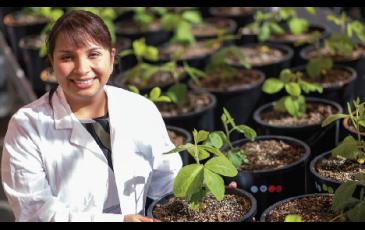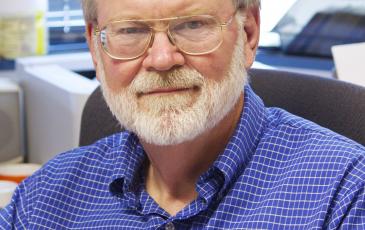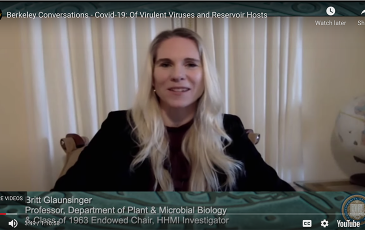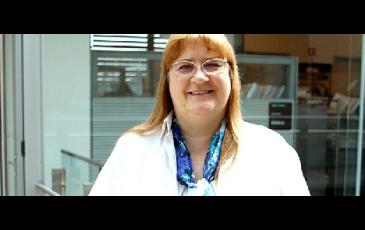How do we feed a growing population and engineer crops that are resilient to climate change? How do we increase crop yields and fight crop diseases and pests while preserving our soils and water sources? The rapid advance of gene editing and other technologies has provided a new tool kit to address these questions and more, and they have already made an impact at a global scale, just at the...
Past PMB Seminars
For a schedule of all Plant & Microbial Biology events, seminars, and lectures visit our calendar.
Patrick Keeling: Buchanan Lecture: Coral, Photosynthesis, and the origin of Apicomplexan Parasites
Patrick John Keeling is a biologist and professor in the Department of Botany at the University of British Columbia. His research investigates the phylogeny, genomics and molecular evolution of protists and his work has led to numerous advances in assembling the eukaryotic tree of life.
View video below:
N. Cecilia Martinez-Gomez: Thriving with Lanthanides: New Life Metals in Methylotrophy
We would like to welcome Assistant Professor N. Cecilia Martinez-Gomez to the Plant and Microbial Biology Department at UC Berkeley. Cecilia previously worked at the Department of Microbiology and Molecular Genetics at Michigan State University where she did research in Microbial Metabolism, particularly one-carbon metabolism, and worked on the project 'Lanthanide biochemistry and metabolism'.
View video below:
Steven Lindow: Martin Meyerson Berkeley Faculty Research Lectures: Understanding Microbial Life on Leaves
As a world leader in the environmental and ecological sciences, Professor Steven Lindow has been a dominant force in revealing complex interactions between microbes, plants, and the environment. Using genetic and molecular research techniques, his current work focuses on developing biological strategies for addressing plant disease and frost control that can serve as alternatives to chemical...
Of Virulent Viruses and Reservoir Hosts
Join professor Britt Glaunsinger and postdoc Cara Brook in a Berkeley Conversation webinar on lethal viruses, pathogen transfers to humans, and more.
Joseph Mougous: Interbacterial antagonism: an ancient process that remains full of surprises
Dr. Mougous performed his graduate studies at the University of California at Berkeley in the laboratory of Dr. Carolyn Bertozzi. The Mougous Laboratory studies the interactions of bacteria with each other and with their hosts. Many interactions between bacteria involve toxins that one cell injects into another. A major focus of the Mougous Laboratory has been to identify such toxins and to...
Timothy Close: Cowpea: a reliable friend of humanity and its genome
Agricultural Plant Genomics and BreedingResource development: high-density genotyping, genome sequences, markers, germplasmCowpea (Vigna unguiculata): biotic & abioitic stress, seed quality, domestication traitsDehydrin proteins and multigene family.
Petra Fromme: Arnon Lecture: Toward Molecular Movies of Photosynthesis "in Action" with X-Ray Free Electron Lasers
Petra Fromme received her B.S. (Vordiplom) and M.S. (Diplom) in Biochemistry from the Free University of Berlin, received her Ph.D. in chemistry and did her habilitation in physical chemistry at the Technical University of Berlin.










